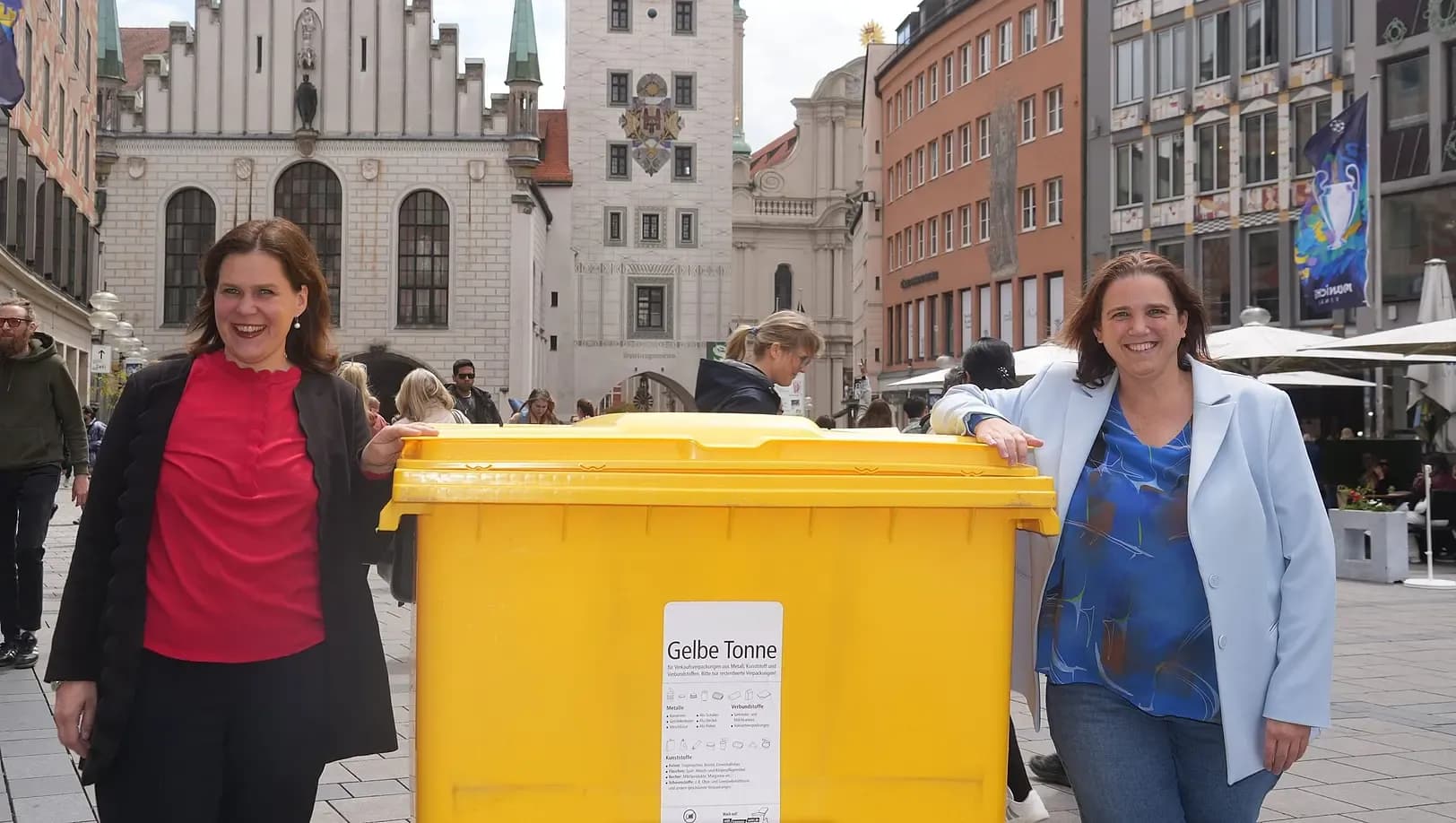
München is preparing to roll out a citywide system for collecting lightweight packaging waste through the introduction of the "Gelbe Tonne" (yellow bin). This move marks a significant shift from the current system, where citizens bring their recyclable materials to centralized collection points. A decision on negotiations with Germany's dual system operators for waste management is expected during Munich's city council meetings in the coming weeks, with implementation planned for January 2027.
Results from a pilot program conducted in 2024 across five city districts strongly favor the adoption of the yellow bin. Three collection options—yellow sack, yellow bin, and recycling bin—were evaluated alongside the existing bring system. According to the findings, the Gelbe Tonne not only increased the volume of recyclable materials collected but also demonstrated lower error rates in sorting compared to other methods. The environmental analysis highlights a reduction in greenhouse gas emissions, affirming the ecological edge of this system. Importantly, the implementation is projected to incur no additional charges for Munich residents, as costs are financed through Germany’s dual system framework.
Proponents argue that the system offers significant advantages. It simplifies waste management for citizens by removing the need to transport recyclables to shared deposit containers and promises a more visually organized urban landscape. The municipal waste authority (AWM) views the initiative as a step toward Munich’s broader zero-waste ambitions, aiming to divert lightweight packaging from general waste and improve overall recycling rates in the city.
Not all perspectives are fully aligned with the enthusiasm. Concerns raised by municipal representatives, including the CSU party, emphasize unresolved logistical and financial issues. Questions linger about storage space for the new bins in an already densely populated city and the costs that private companies might charge for additional services like bin retrieval from restricted-access areas. Additionally, criticism has been voiced regarding the persistence of challenges in other recycling areas, such as glass collection, with calls for national measures to improve outdated systems.
The final decision on implementing the system is expected after a vote in July 2025. Should the proposal move forward, the city will coordinate its efforts with dual system operators to finalize contracts and prepare for full-scale deployment. Until then, pilot areas will continue using the tested systems to further refine their rollout.


München is preparing to roll out a citywide system for collecting lightweight packaging waste through the introduction of the "Gelbe Tonne" (yellow bin). This move marks a significant shift from the current system, where citizens bring their recyclable materials to centralized collection points. A decision on negotiations with Germany's dual system operators for waste management is expected during Munich's city council meetings in the coming weeks, with implementation planned for January 2027.
Results from a pilot program conducted in 2024 across five city districts strongly favor the adoption of the yellow bin. Three collection options—yellow sack, yellow bin, and recycling bin—were evaluated alongside the existing bring system. According to the findings, the Gelbe Tonne not only increased the volume of recyclable materials collected but also demonstrated lower error rates in sorting compared to other methods. The environmental analysis highlights a reduction in greenhouse gas emissions, affirming the ecological edge of this system. Importantly, the implementation is projected to incur no additional charges for Munich residents, as costs are financed through Germany’s dual system framework.
Proponents argue that the system offers significant advantages. It simplifies waste management for citizens by removing the need to transport recyclables to shared deposit containers and promises a more visually organized urban landscape. The municipal waste authority (AWM) views the initiative as a step toward Munich’s broader zero-waste ambitions, aiming to divert lightweight packaging from general waste and improve overall recycling rates in the city.
Not all perspectives are fully aligned with the enthusiasm. Concerns raised by municipal representatives, including the CSU party, emphasize unresolved logistical and financial issues. Questions linger about storage space for the new bins in an already densely populated city and the costs that private companies might charge for additional services like bin retrieval from restricted-access areas. Additionally, criticism has been voiced regarding the persistence of challenges in other recycling areas, such as glass collection, with calls for national measures to improve outdated systems.
The final decision on implementing the system is expected after a vote in July 2025. Should the proposal move forward, the city will coordinate its efforts with dual system operators to finalize contracts and prepare for full-scale deployment. Until then, pilot areas will continue using the tested systems to further refine their rollout.